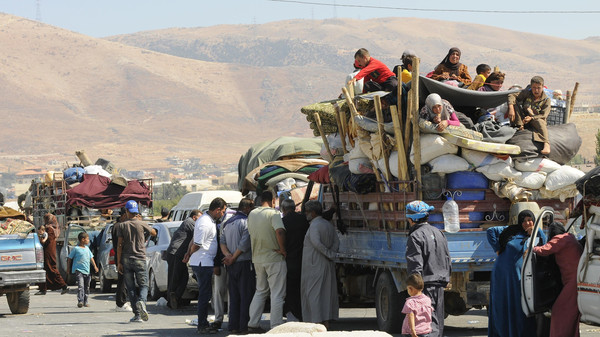Lebanon: One year since the review, one more year to present tangible progress
Published on 29 Mar 2019, 04:57 PM
Awaiting progress on Lebanon’s commitments to civil and political rights
 Meeting with Salim Jreissati, Minister of Justice of Lebanon on 28 January 2019 to discuss the HR Committee's recommendations on ICCPR implementation.
Meeting with Salim Jreissati, Minister of Justice of Lebanon on 28 January 2019 to discuss the HR Committee's recommendations on ICCPR implementation.
It has been one year since the ICCPR review on Lebanon took place in Geneva (15 and 22 March 2018). It was the first review after twenty years of interruption in their cooperation with the UN Human Rights Committee, the body monitoring the ICCPR implementation. A series of 25 recommendations were addressed to the Government by the Committee, including three urgent issues, where the State is required to take concrete measures within two years (one more year left to the deadline in March 2020).
These issues included violence against women, in particular domestic and sexual violence, the protection of refugees and asylum seekers and the rights of migrant domestic workers with the specific issue of the sponsorship system (kafala).
As half of the timeframe allocated for the follow-up procedure has already elapsed, the Centre for Civil and Political Rights in Geneva, and ALEF in Lebanon, organised a follow-up mission in Beirut to advocate for a full implementation of the Committee’s recommendations. A Member of the HR Committee, Ilze Brands Kehris joined this mission together with Patrick Mutzenberg, Director of the Centre.
"During our stay in Lebanon, we were pleased to meet with High Level authorities, Members of the Parliament, as well as Members of the newly established National Human Rights Commission and representatives from Civil Society."
- Patrick Mutzenberg, Director of the Centre
Several challenges for the newly formed Government of Lebanon
“During our stay in Lebanon, we were pleased to meet with High Level authorities, Members of the Parliament, as well as Members of the newly established National Human Rights Commission and representatives from Civil Society. They all showed a genuine interest to the Committee’s recommendations and were ready to engage to respect the ICCPR in the country”, said Patrick Mutzenberg at the end of his meetings.
As a concrete and positive step, one might mention the recent establishment of the National Human Rights Commission which will include a National Mechanism for the Prevention of Torture. But a lot of issues remain unsolved, such as a lack of budget and respect of the full autonomy of this body.
Regarding the key issues identified by the Committee, there are still several challenges for the newly formed Government of Lebanon.
No progress has been made since the 2018 review to allow prosecutions in all cases of rape. “The positive steps taken in August 2017 repealing the article 522 of the criminal code exempting a rapist from criminal liability if he married the victim is not sufficient” warned the Committee in March 2018. “Additional amendment needs to be done in particular the amendment of the articles 505 and 518 and the establishment of the criminalisation of the marital rape and so far there is no progress in that matter” regretted Francisca Ankrah from ALEF.
The respect of the fundamental rights of asylum seekers and refugees is another issue discussed by the CCPR-Centre’s delegation in particular with the previous Minister of State for Displaced Affairs Mouin Merheby. Committee Member Ilze Brands Kehris urged “the Government of Lebanon to refrain to pushback to Syria asylum seekers and refugees and to guarantee that all asylum seekers can appeal against a negative decision”.
“With regard to the protection of domestic workers it is very worrying to see that no specific steps were taken or even envisaged” said Patrick Mutzenberg. “The sponsorship system – also known as kafala– violates the most basic rights of the migrant workers and was clearly denounced by the Committee. It is very disappointing to see that little attention is given to this issue leaving more than 150’000 persons in a state of modern slavery” he added, “urging the Government of Lebanon to take measures to reform the recruitment process of the migrant worker as required by the Human Rights Committee”.
Follow-up report from Lebanon due by March 2020
The Government of Lebanon has to respond by March 2020 to the Human Rights Committee and indicate what progress has been made to implement the recommendations on the three urgent issues. The Civil Society will also provide an assessment based on their own findings.
 Meeting with Salim Jreissati, Minister of Justice of Lebanon on 28 January 2019 to discuss the HR Committee's recommendations on ICCPR implementation.
Meeting with Salim Jreissati, Minister of Justice of Lebanon on 28 January 2019 to discuss the HR Committee's recommendations on ICCPR implementation.


